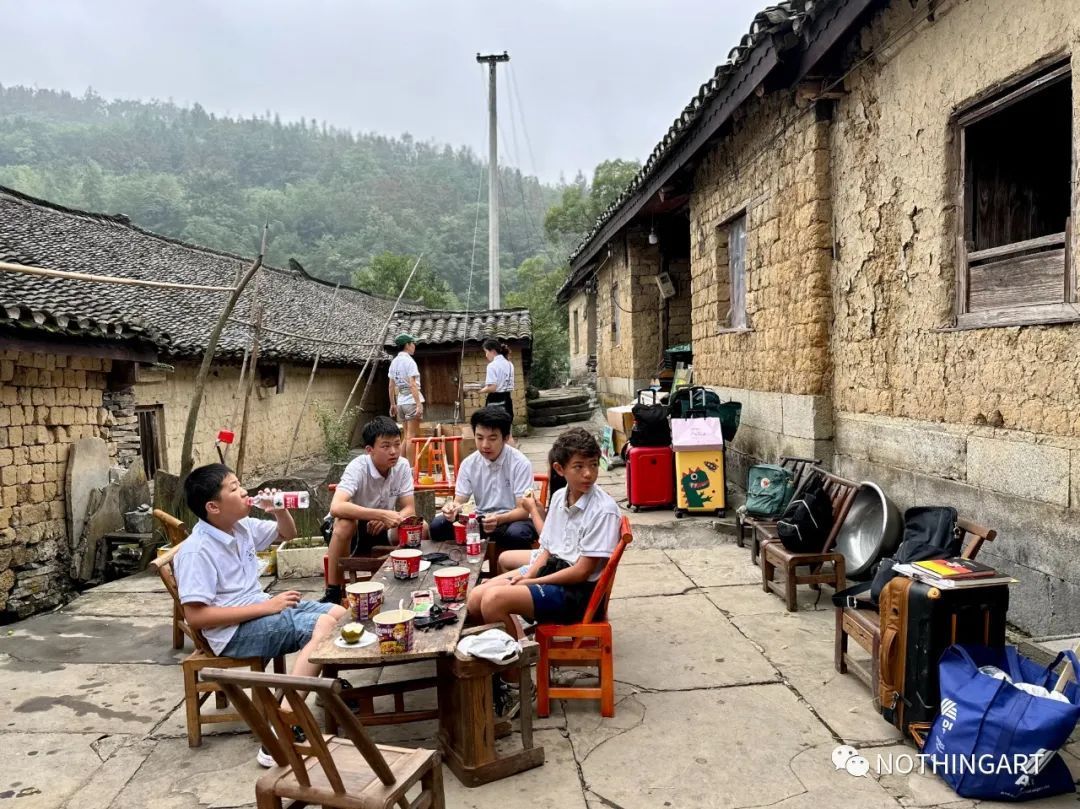I will be graduating from primary school and entering secondary school this coming August. When we started our last semester, we received a semester-long project – a piece of art with the theme “artists’ respond to social issues to inspire change”.
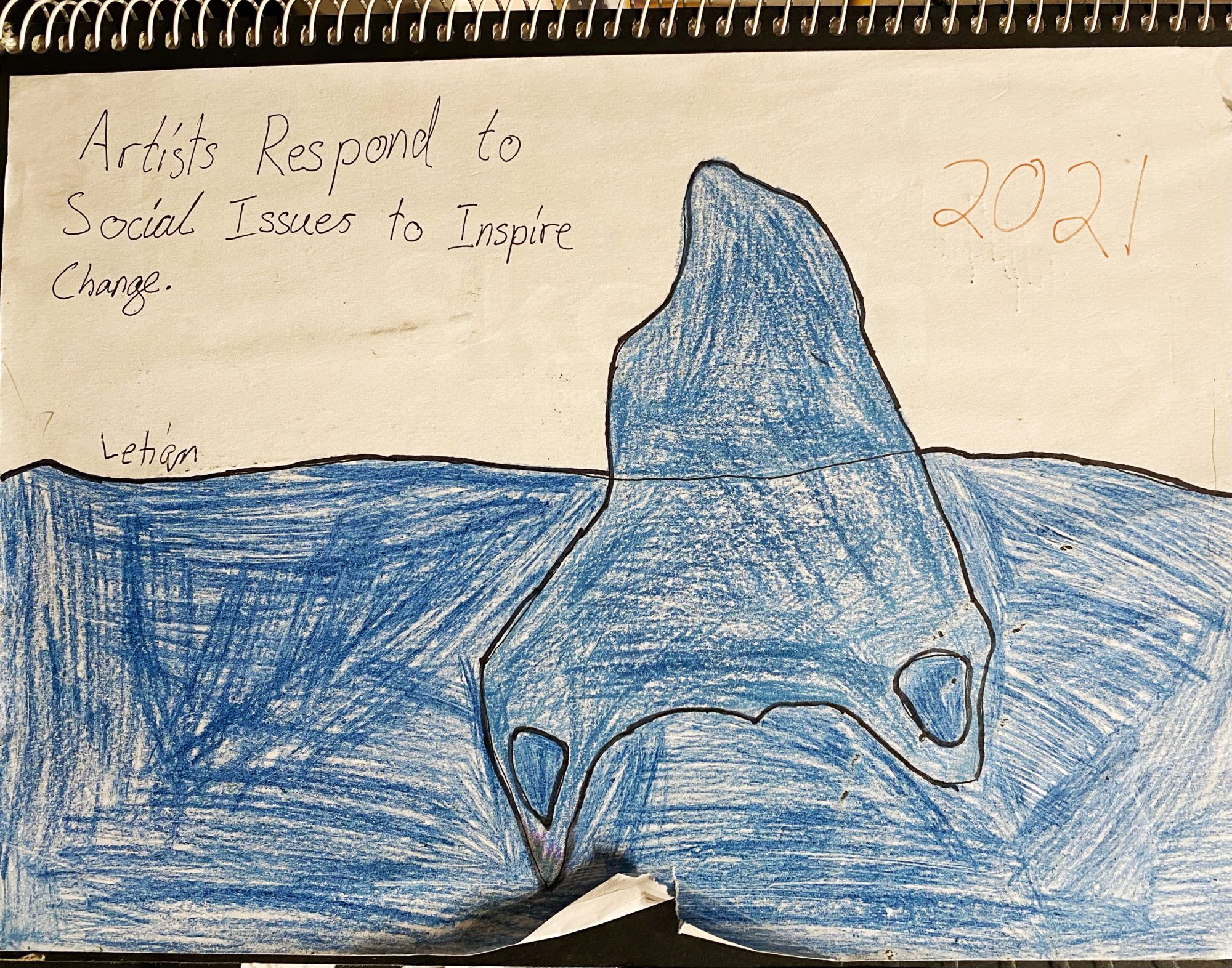
The Responsibility of Artists to the Social Issues
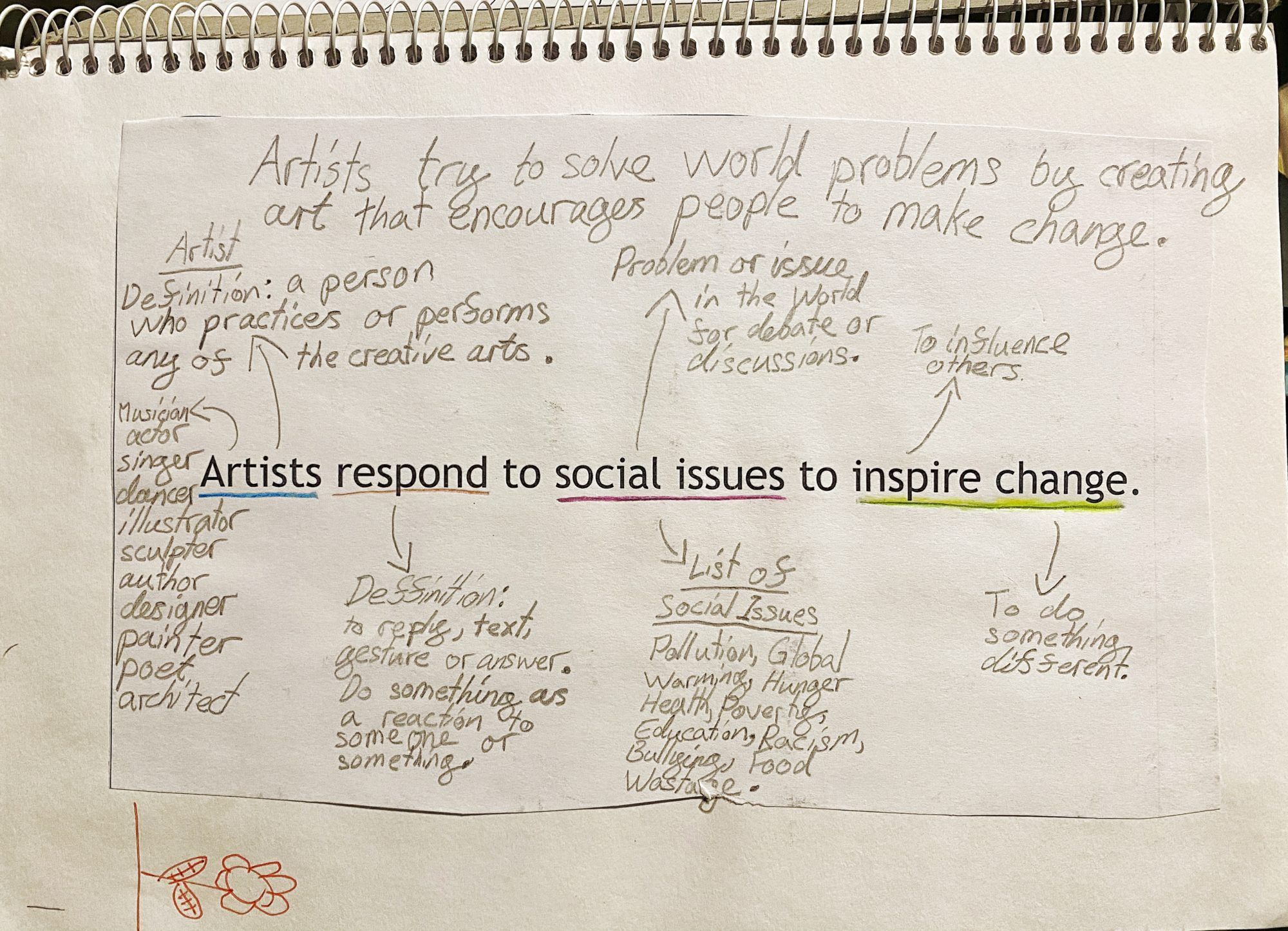
There are few key points:
- What do artists do?
- What are their responsibilities?
- What are the social issues?
- How do they inspire us?
- What changes can be done?
- Week 1-2: Decide social problem
- Week 3-4: Research
- Week 5-6: Art action
- Week 7: Presentation and exhibition planning
- Week 8: Art exhibition
The first stage was the toughest for me.
I spent a long time thinking, as well as discussing with family and friends, what are the social issues out there? Which of them concerns me the most that I want to make some changes?
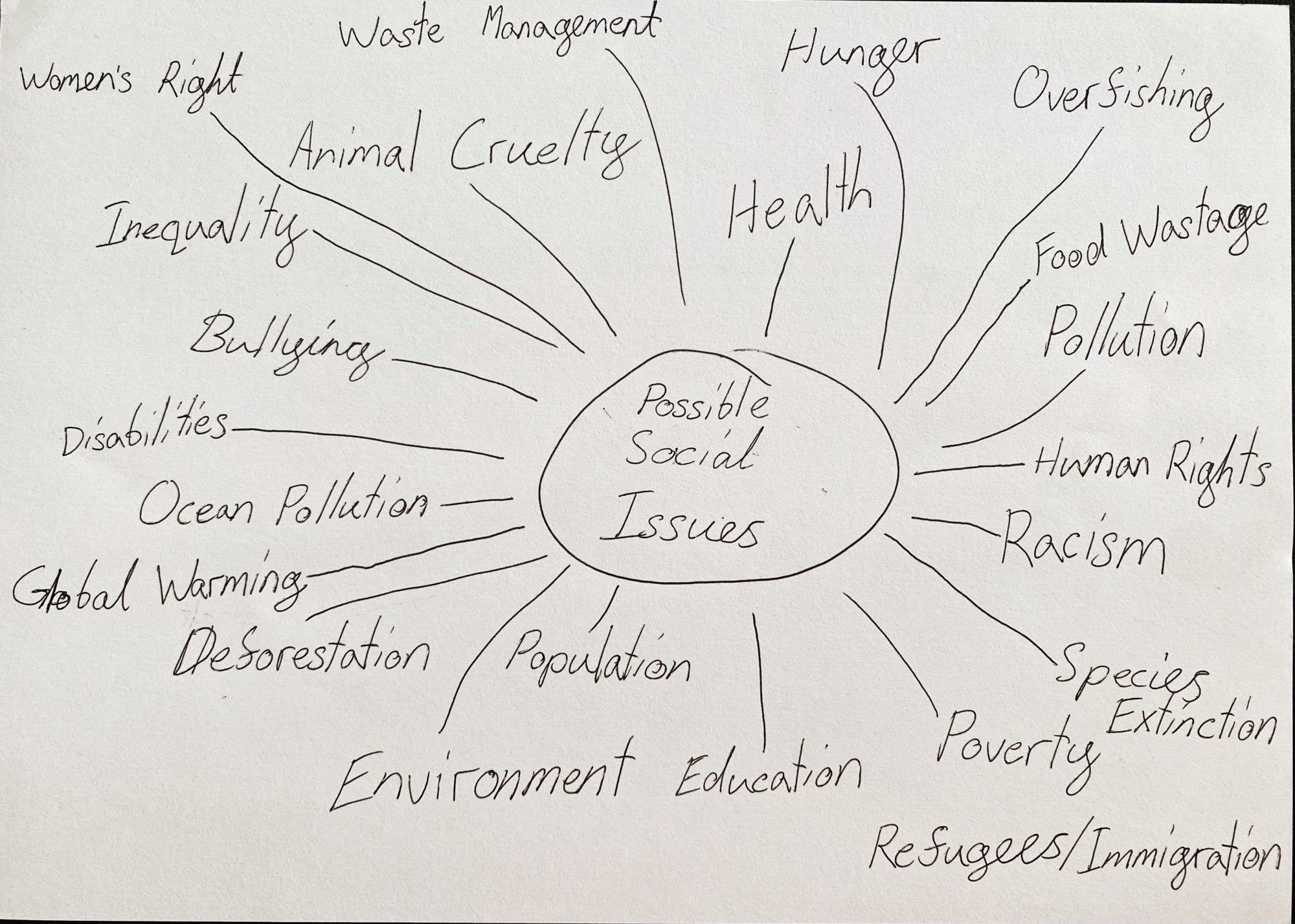
When I went to further organize the materials, I recalled the memories of our volunteering experience at “Pure View”.
What did I feel most strongly about during the activities? Was it poverty?
Not entirely.
What touched me the most was the way that the kids look at me, clinging closely to my mother.

「Pure View®️Da Ga Ji village」Meet in Yun Nan
「Pure View®️Qi Tai Village」Meet in Qi Tai
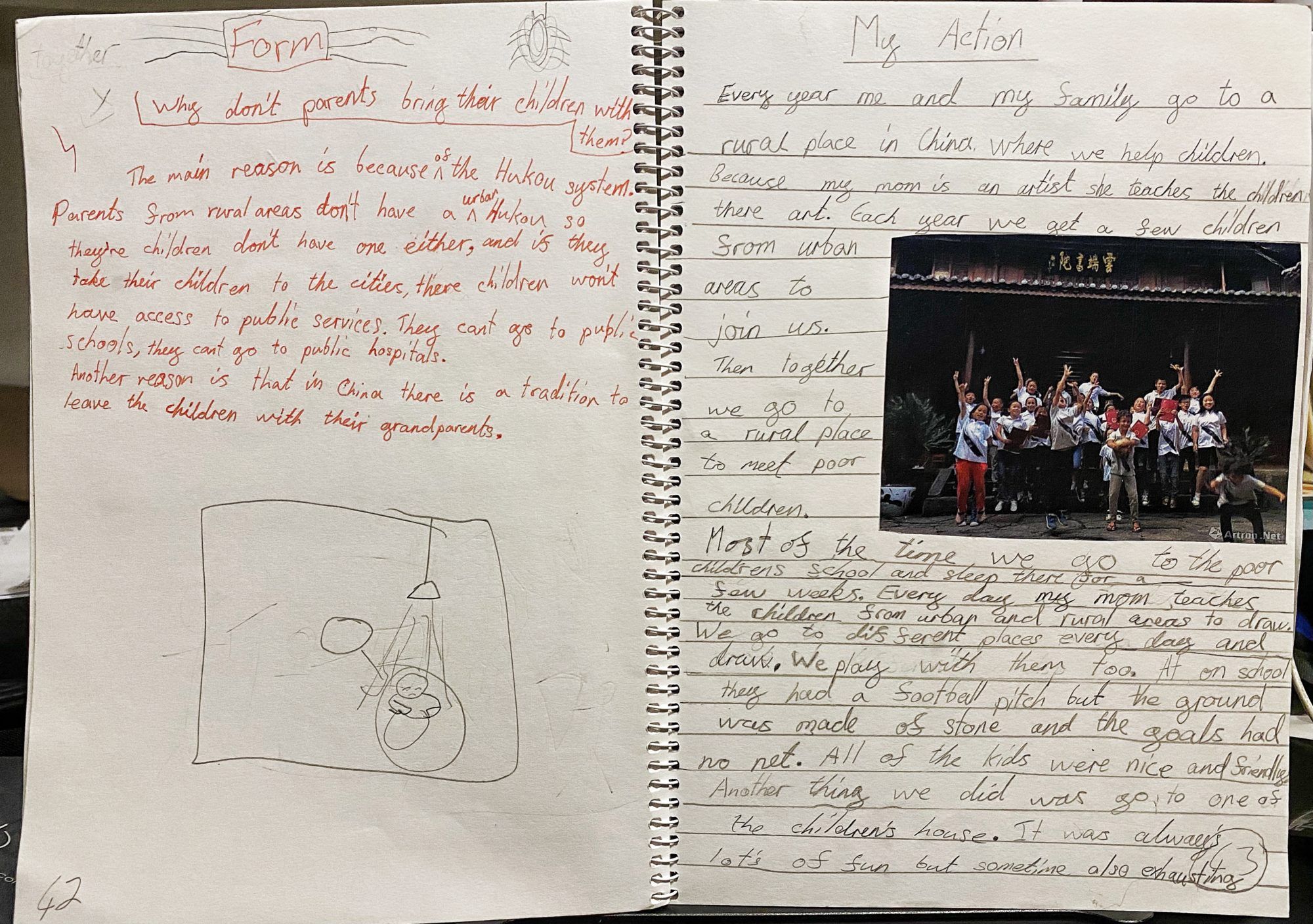
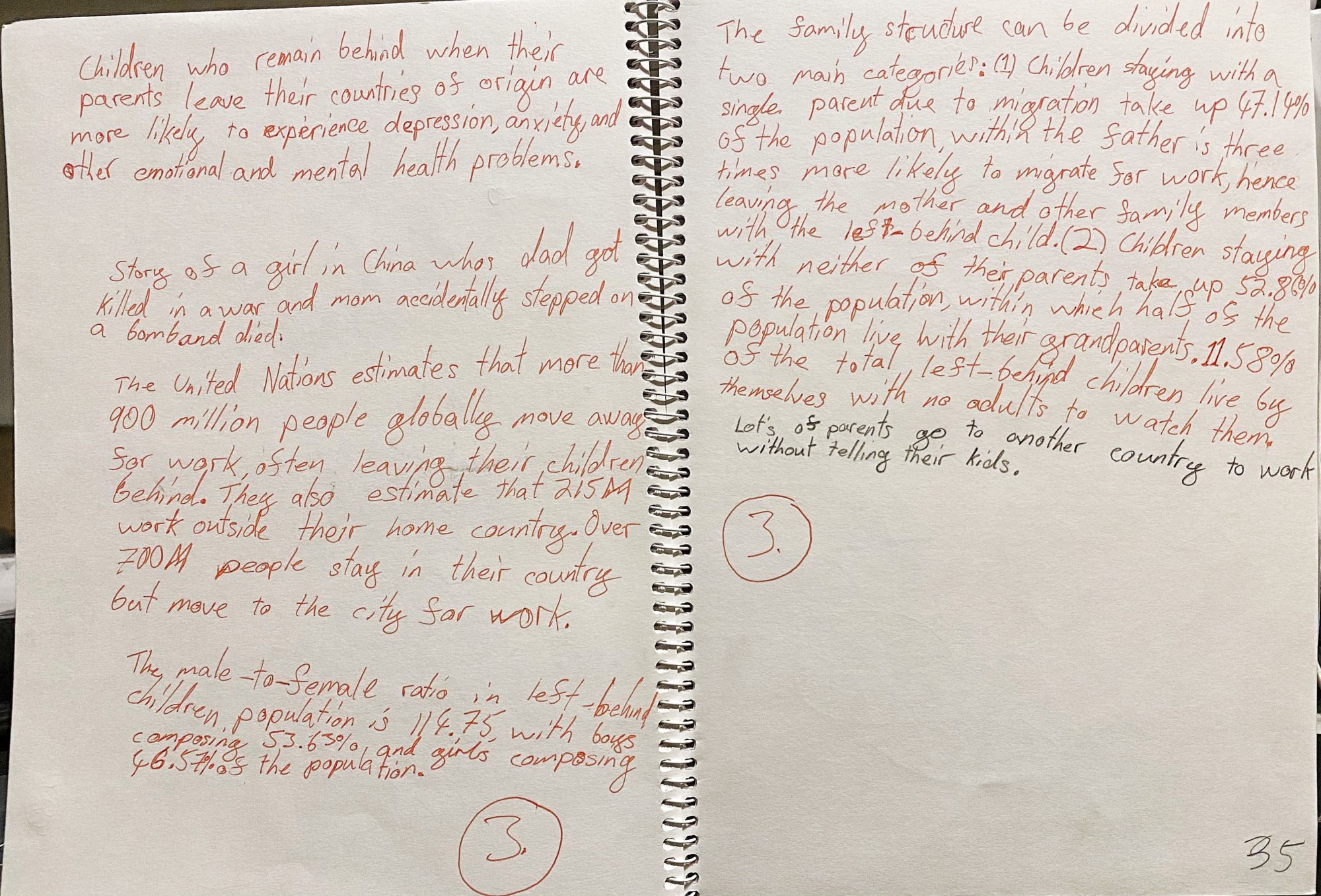
The phrase “children left behind” often refers to children raised at home by grandparents or family members, who have been left behind by their parents working in other cities. Those parents sometimes leave for a year and only come back once a year. Even worse, some parents can be away for five years.
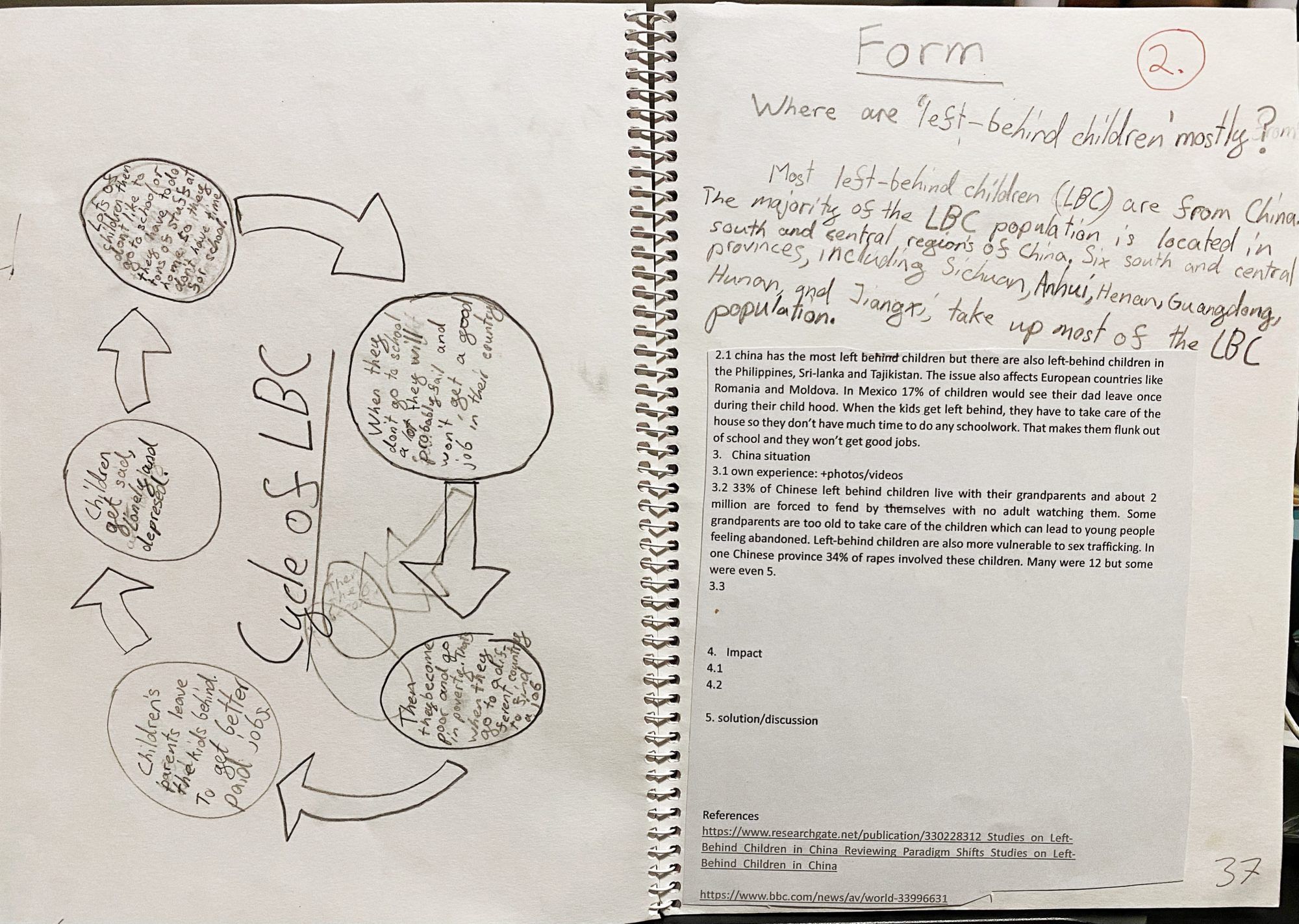
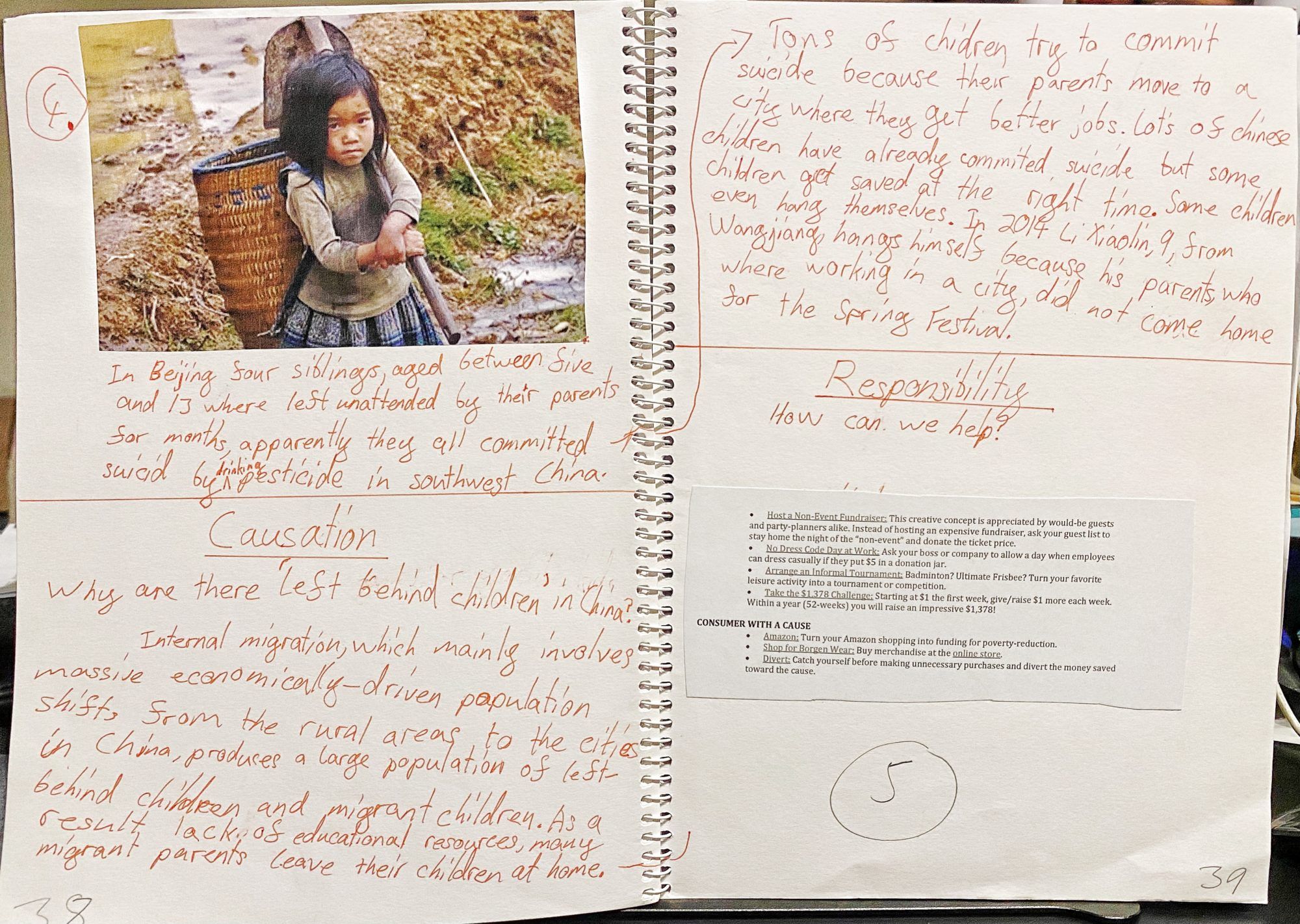
Nobody wants to leave their children, right? But why are all these children left behind? I did some research and found these reasons:
- Often parents live apart from their children because there are limited job opportunities in their community – or the available jobs do not pay enough to sustain a family. Higher-paying jobs elsewhere may allow parents to improve their family’s living situation. (In 2017, the total volume of remittances, the funds sent by foreign nationals to their country of origin, surpassed 466 billion USD, with much of the money used to support the health, education, and well-being of children left behind.)
- A lack of safe and legal pathways prevents parents from migrating with their children. The children in China are left behind mainly because of the system of “Hu Kou”, which determines the city household registers too. If the parents working in the city cannot get registered, the children would not be able to receive public education, public hospital, and welfares from that city. Hence they have to stay in their hometown with their grandparents where the household is registered to. There are benefits to the Hu Kou system as well. It keeps the population of an urban city in control. Especially during the Covid-19 pandemic, it is crucial to track the population’s movement with the Hu Kou system.
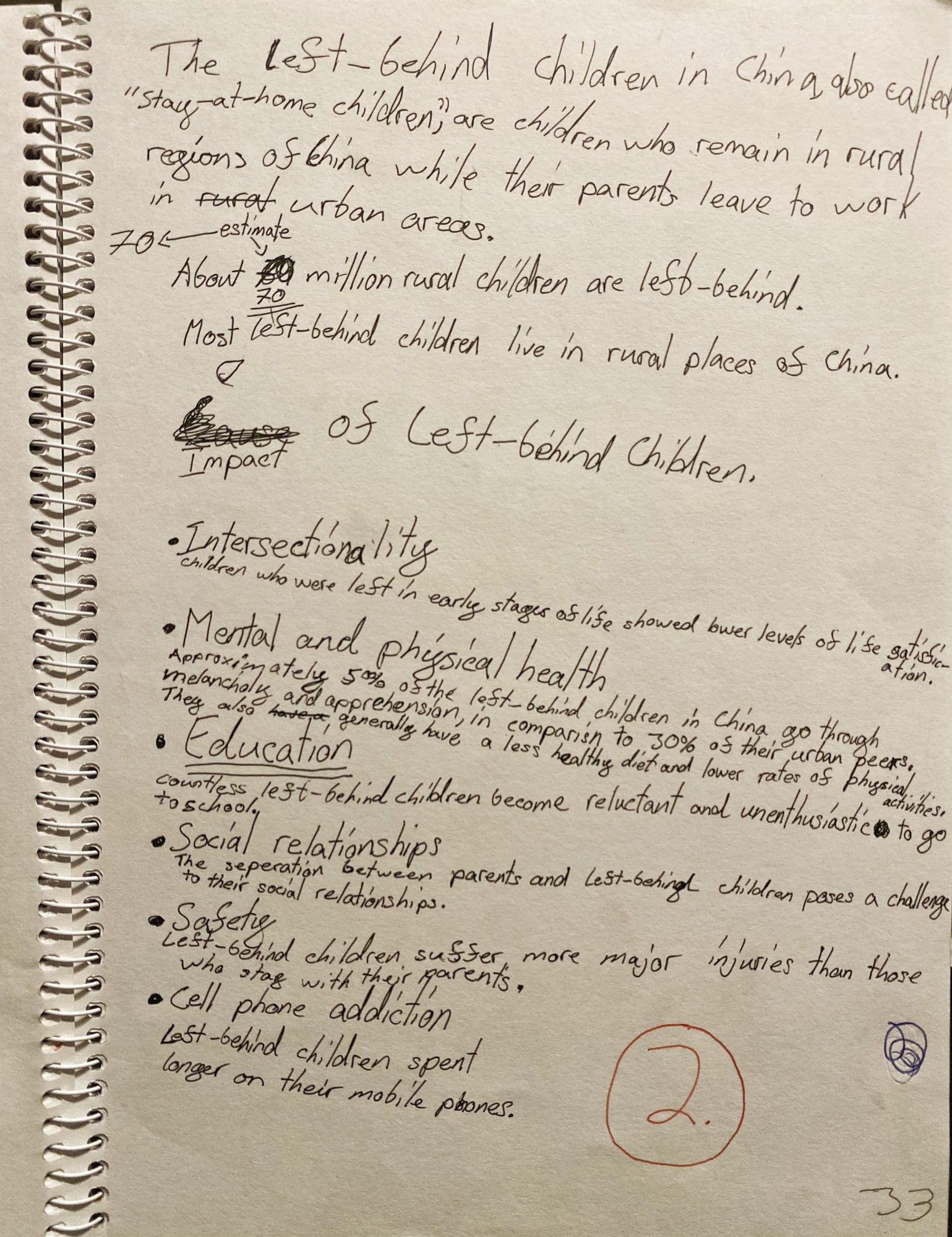
- Mental Health
Children need continuous contact with their parents, as well as support by guardians and the community. They may be left in the care of grandparents, but without parents’ company, many children left behind can experience social isolation – and this is exacerbated when they are unable to participate in community life.
Many children are unable to communicate with their parents abroad, which can increase a child’s risk of psychological disorders, including depression and anxiety. Children “left behind” are more likely to experience psychological and emotional stress or loneliness, and may feel abandoned and have low self-esteem. This can further lead to acting out and other behavioral problems. This, in turn, can increase the risk of substance abuse and conflict with the law.
In some communities, these children are perceived to be “more arrogant, aggressive, and rude” than other children. In some worst cases, it can lead to crimes such as drug abuse and prostitution.
- Education
The benefits of parents working in cities might be that they can help children afford school fees and supplies to avoid dropping out. Further, parents working abroad may gain a greater appreciation for schooling. For example, a study in India found that parents who migrated to urban areas became more appreciative of the value of education, and thus made sure their children received better schooling.
However, children with one parent leaving may be less likely to enroll in school, have declining attendance, or drop out early. Children lose an irreplaceable source of emotional support without parents around. Older children, in particular, may face increased pressure in the home to care for younger siblings. Like we have seen in the poor villages, a lot of children are responsible for taking care of the family, sacrificing their time to play and study. The chores increased the chance of dropping out, whereas giving up on education means giving up on a better career.
- Healthcare
- Protection
Change

With “Pure View”, we come into contact with many left-behind children in poverty-stricken areas each year. They are just like us, hoping to get warmth and love from their parents. I have thought of the following methods that can alleviate the issue:
- The government should increase regular channels for workers to move with their families, to help with the education and healthcare of their children in the city. The private sector can consider family-friendly work environments for all employees, including family visit time to allow workers to visit their family at home or abroad.
- Parents should have a pre-departure talk with their children, to lessen the potential emotional and psychological risks they might face. They should also maintain regular contact with their children, to express their love and care for their children.
- Ensure educational, healthcare, child protection, and social protection providers are sensitive to the needs of children “left behind” and have protocols in place to address child abuse, emotional issues, and other challenges these children might face. Fortunately, there is an increasing number of people who are voluntarily forming organizations devoted to children protection in local areas.
- Include children “left behind” when assessing a child’s need for social services and legal support, and ensure these children are not excluded from services and assistance.
- Gather more data on children whose parents have migrated and migrating families, in general, to better understand the challenges they face. In particular, focus on the mental, emotional, and physical health of children left behind. Encourage countries to adopt information management systems to monitor both children who receive services and those who are not receiving services.



